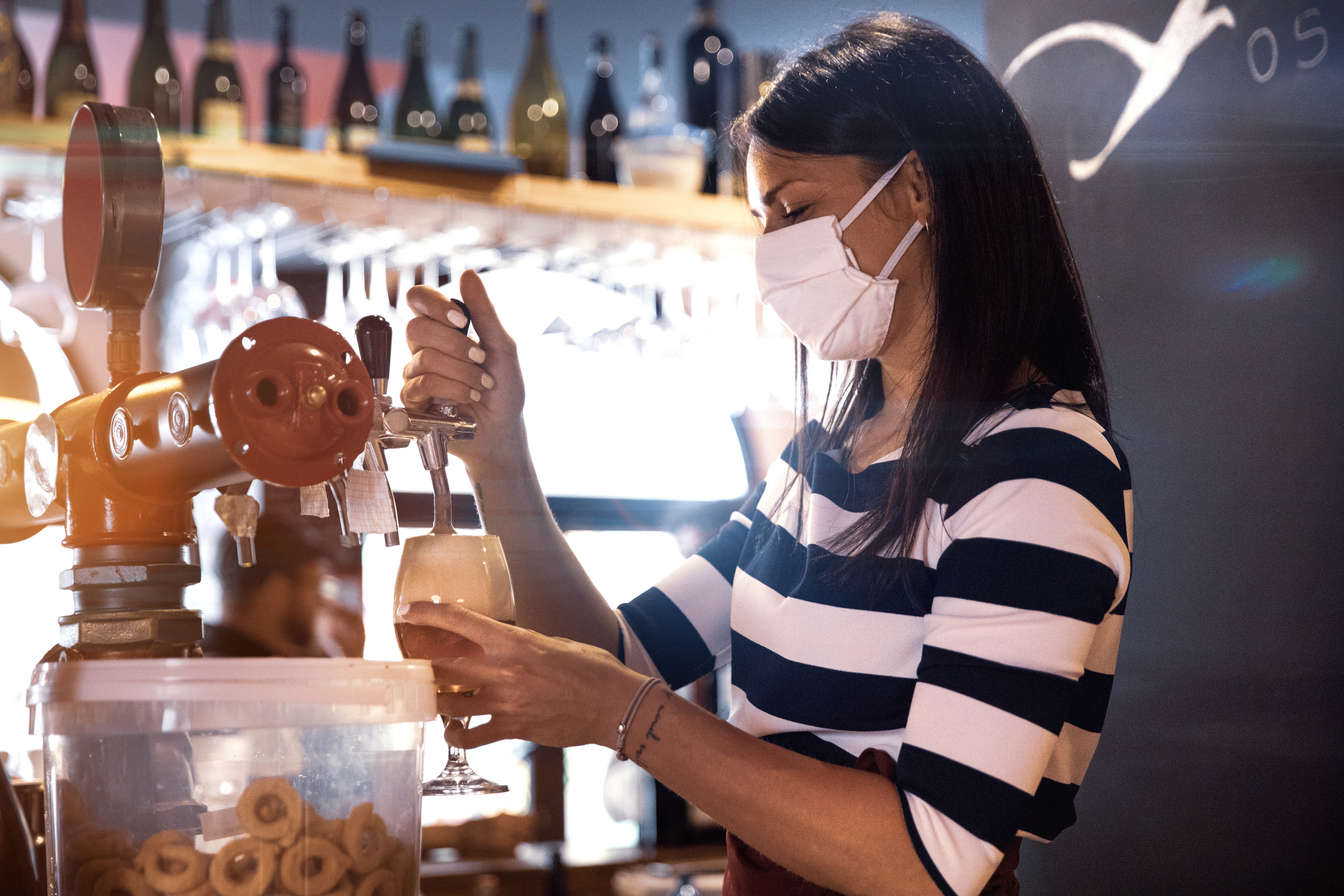Some companies have learned how to manage COVID-19 outbreaks among their employees by turning to medical experts to walk them through the steps they need to take to minimize the spread.
Freemont Brewing Co. in Seattle, which operates two brewing facilities and the Urban Beer Garden tasting room, had one employee test positive in June, leading the company to shut down its operations for several days to sanitize and have the rest of the staff get tested.
“That was a lesson learned, because we realized that this is going to keep happening again and again, and we can't keep shutting down the business,” said Sara Nelson, co-founder and owner.
Through her own social network, Nelson found a consultant, Ann Jarris, founder and CEO of Discovery Health MD, who had experience working on COVID safety protocols for commercial fishing boats. If she could protect workers living in close quarters in the middle of the Bering Sea, she could certainly handle a restaurant and brewery operation, Nelson said.
“I recommend that any business hire a consultant,” said Nelson, who added that the human resources manager at Freemont Brewing “calls her all the time.”
Jarris stays on top of the latest recommendations from local, state, and national authorities, as well as legislative issues, which helps Freemont navigate the ever-shifting maze of information, Nelson said.
“It's always a moving target, so that's one good reason to have a consultant,” said Nelson.
Jarris has also helped Freemont implement a system that has allowed it to continue operating safely, even as other workers have had positive tests. In addition to extensive sanitation, social distancing, and daily temperature checks, Freemont also forbids — with few exceptions — workers in each of its two sites from visiting the other (Freemont operates a small specialty brewing facility at the Urban Beer Garden, and its main brewing facility at another location). That reduces the opportunity for spread and eliminates the need to shut down the entire operation when one worker tests positive.
Now the company also has a system calling for quarantining and testing employees based on potential exposure to the virus:
• If an employee tests positive, they must self-quarantine for two weeks at minimum, and can then return after they have a negative test result.
• In the meantime, the company conducts contact tracing to identify anyone else who was within six feet of that employee for 15 minutes or more without a mask. Those individuals are sent home to get tested and quarantine for 10 days. They must also get a test on day seven in order to return to work on day 11, assuming the test is negative.
That is also the protocol for people who have close contact with infected people outside of work. Nelsen herself self-quarantined after coming in close contact with a friend who learned that she had been in close contact with someone else who tested positive.
Nelson, like most of the company’s management team, had been working from home anyway, and was mainly concerned that she might have infected members of her family. She tested negative after seven days and eventually returned home to work.
Freemont Brewing also has the same mandatory quarantine and testing rules for employees who travel back to Washington from out of state.
“That's even without any known contact — just traveling out of state,” said Nelson. “We can't keep changing our rules based on other states’ rates, so we just have a flat-out policy.
“We can't enforce what people do off the clock, but we instill a sense of collective responsibility,” she added.
Navigating misinformation
Dylan DeMiguel, director of sales at The Shop Beer Co., a craft brewer based in Tempe, Arizona, said his company also had an employee test positive around the end of June, and as a result temporarily shut down the company’s operations.
“At that time, there really wasn't much guidance out there,” he said. “There was so much misinformation everywhere you looked.”
He said the company first and foremost was concerned about the employee — who ended up having a mild case of COVID-19 — and about communicating honestly and transparently with the rest of the staff as much as possible.
The Shop consulted with some physician friends — one of whom is an emergency room doctor accustomed to treating COVID patients — and determined that based on the activities of the person who tested positive, others on the staff had potentially been exposed. That led the company to close down the operation for about a week, and ask all of the workers to quarantine at home.
“Thankfully, nobody else got it,” DeMiguel said. “All of our masking, our cleaning procedures, our separation of staff — our programming really worked.”
Then, just in the last few weeks, both DeMiguel and his wife have tested positive, which led him to call upon the same doctors for advice. Because DeMiguel had been testing negative for a few days after his wife tested positive, and he was already self-isolating, they determined that he had posed no risk of having infected anyone at the business.
“It's tough to make those decisions, and you don't want to be frivolous about it, but if we can't trust our doctors, then I don't know who the hell we can trust right now,” he said.
In the meantime, The Shop has implemented a “pod” system so that employees from the production part of the business don’t interact with employees in the front of the house, to help minimize the possibility of spreading the virus, among a host of sanitization and social distancing precautions.
“We love our staff—we’re really tight-knit,” said DeMiguel. “We just want to make sure our patrons feel safe, our staff feel safe, and that we're just doing the best we possibly can right now.”
Related: Caputo's Prioritizes Customer Connections, Social Justice; Restaurants Struggle with Ongoing COVID Challenges.

